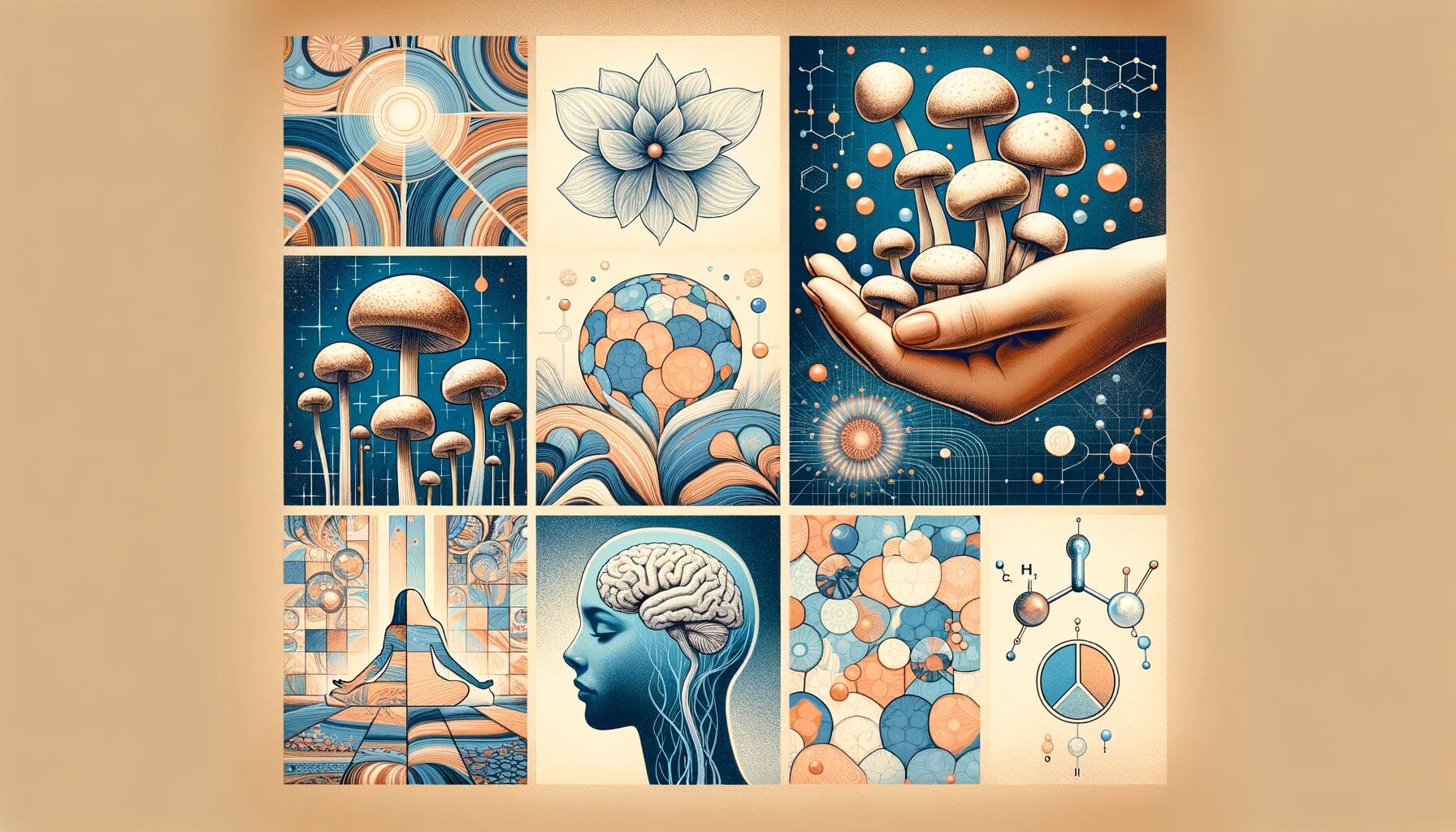The practice of microdosing – taking minute amounts of psychedelic substances – has gained significant traction in recent years, especially with psilocybin mushrooms. Psilocybin, the active compound in these mushrooms, is renowned for its potential to induce profound psychedelic experiences. However, when taken in small, sub-hallucinogenic doses, known as microdoses, it is being reported to have various mental health benefits. This blog post delves into how microdosing psilocybin might be a game-changer for those seeking alternative mental health therapies.
Understanding Microdosing and Its Popularity
Microdosing involves consuming roughly 1/10th of a recreational dose of a psychedelic substance, which in the case of psilocybin, is typically about 0.1 to 0.3 grams. This trend has grown popular partly due to the increased interest in alternative mental health treatments and the desire to enhance cognitive function and emotional well-being. Users of microdosing report improved mood, increased focus, and creativity, without the intense psychoactive effects associated with higher doses of psychedelics. This method allows individuals to potentially reap the benefits of psilocybin while maintaining their usual daily routines.
Potential Mental Health Benefits
The most compelling aspect of microdosing psilocybin is its potential to improve mental health. Anecdotal reports suggest that microdosing can alleviate symptoms of depression, anxiety, and PTSD, offering a sense of improved emotional balance and well-being. Some users also report a reduction in the occurrence of migraines and chronic pain. While scientific research is still catching up, preliminary studies indicate positive results, suggesting that microdoses of psilocybin could modulate mood and cognitive processes.
The Science Behind Microdosing
Scientifically, microdosing psilocybin is believed to work by stimulating the brain’s serotonin receptors, particularly the 5-HT2A receptor, which plays a key role in regulating mood, cognition, and perception. This stimulation can lead to neuroplastic changes, essentially making the brain more adaptable and potentially more resilient to stressors. Research also suggests that microdosing can increase neural connectivity and encourage the growth of new neurons, a process known as neurogenesis.
Safety and Legal Considerations
While microdosing psilocybin shows promise, it’s important to discuss safety and legality. Psilocybin remains illegal in many parts of the world, classified as a Schedule I drug. This classification complicates research efforts and access for therapeutic use. In terms of safety, while microdosing is generally considered low-risk, especially compared to full doses, potential side effects like mild anxiety or physiological changes still warrant caution. It is crucial to stay informed about the legal status of psilocybin in your region and consult healthcare professionals when considering its use.
Future of Microdosing in Mental Health Treatment
Looking ahead, the future of microdosing psilocybin in mental health treatment appears promising. Ongoing research and clinical trials are likely to provide more concrete evidence of its benefits and limitations. As the scientific community and regulatory bodies continue to explore and understand the potential of psilocybin, we might see a paradigm shift in how we approach mental health treatment, especially for conditions resistant to traditional therapies. Microdosing could offer a novel, effective avenue for improving mental health and overall quality of life.
Conclusion
Microdosing psilocybin mushrooms presents an intriguing and potentially transformative approach to mental health treatment. Offering a way to harness the benefits of psychedelics without the intensity of a full psychedelic experience, it opens up new possibilities for those seeking alternative treatments for mental health issues. As research progresses, this practice may well become a significant part of the mental health treatment landscape, providing hope and relief to many.
FAQs
Q1: What is microdosing with psilocybin mushrooms?
- A1: Microdosing involves taking very small, sub-hallucinogenic doses of psilocybin mushrooms, typically about 0.1 to 0.3 grams, to potentially improve mood and cognitive function without the intense effects of larger doses.
Q2: Can microdosing improve mental health?
- A2: Anecdotal reports and some preliminary studies suggest that microdosing psilocybin can alleviate symptoms of depression, anxiety, and PTSD, and improve emotional balance and well-being.
Q3: How does microdosing psilocybin work scientifically?
- A3: Microdosing psilocybin is believed to stimulate the brain’s serotonin receptors, leading to neuroplastic changes, increased neural connectivity, and potentially enhanced resilience to stress.
Q4: Is microdosing psilocybin mushrooms safe?
- A4: While generally considered low-risk compared to full doses, microdosing can still have potential side effects like mild anxiety and physiological changes, and should be approached with caution.
Q5: Is microdosing psilocybin legal?
- A5: The legal status of psilocybin varies globally. In many regions, it’s illegal and classified as a Schedule I drug, so it’s important to be aware of the laws in your area.
Q6: What are the potential benefits of microdosing?
- A6: Users report improved mood, increased focus, creativity, and a reduction in migraines and chronic pain.
Q7: What future research is expected on microdosing psilocybin?
- A7: Ongoing research and clinical trials are likely to provide more concrete evidence of its benefits and limitations, potentially leading to new approaches in mental health treatment.
Q8: Can anyone try microdosing psilocybin?
- A8: It’s crucial to consult healthcare professionals before considering microdosing, especially for individuals with mental health conditions or taking other medications.
Q9: Are there long-term effects of microdosing psilocybin?
- A9: Research on the long-term effects is still ongoing, and it’s important to approach microdosing with caution and informed decision-making.
Q10: How is microdosing psilocybin viewed in the context of mental health treatment?
- A10: Microdosing psilocybin is increasingly being considered as a potential alternative therapy for mental health issues, especially those resistant to traditional treatments.

Alex is a seasoned writer and researcher, specializing in psychedelic studies and mental health. Known for insightful and authoritative content, he combines extensive knowledge with a passion for exploring wellness and alternative therapies. Alex’s work is a trusted resource for readers delving into the world of mental well-being.


Leave a Reply